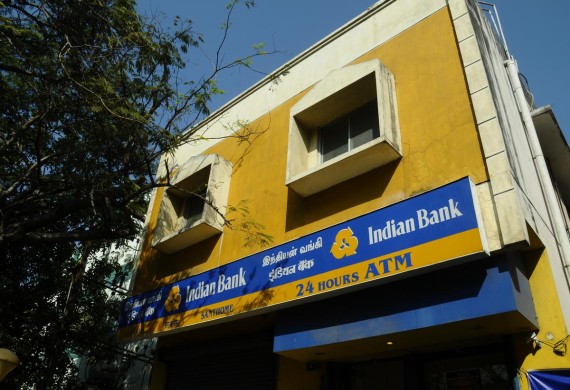
Delhi Women's Commission has issued a Notice against Indian Bank for Discriminatory Policies
By: WE Staff | Tuesday, 21 June 2022
The Delhi Commission for Women (DCW) sent a letter to Indian Bank on Monday in response to media allegations that it had drafted new guidelines prohibiting women who were more than three months pregnant from joining service after being properly selected.
“The Commission has learnt that the Bank has allegedly framed rules which state that if a woman candidate is three months pregnant, then she would be considered as ‘temporarily unfit’ and would not be given immediate joining upon her selection. This will lead to delay in their joining and subsequently they will lose their seniority (sic),” the notice said.
According to the DCW, the move looked to be discriminatory and unconstitutional because it went against the Code of Social Security, 2020's maternity benefits.
“Further, it discriminates on the basis of sex which is against the fundamental rights guaranteed under the Constitution of India,” the notice read.
The DCW requested a response from the bank by Thursday. On Monday, the panel wrote to RBI Governor Shaktikanta Das, requesting that he intervene and issue instructions to all banks to stop from issuing such guidelines. The DCW noted that this was the second bank to do so, following the State Bank of India, which drafted identical policies earlier this year but ultimately withdrew due to reaction.
Activists have also called for the Indian Bank guideline to be repealed. Mariam Dhawale, general secretary of the All-India Democratic Women's Association, claimed the decision was made in violation of the Maternity Benefit (Amendment) Act, 2017, which is still in effect because the Code on Social Security passed to replace it has not yet been implemented. According to Ms. Dhawale, the guideline violated women's fundamental rights and regarded pregnancy as an illness.
Ms. Dhawale stated, “It is a direct attack on a woman’s right to dignity and without dignity, how can there be the right to employment.”
She went on to say that protests against the decision were still going on, and that the bank had taken the guideline down from its website but not erased it.
Most Viewed
- 1 Women's Health Startup HerMD Closing Doors Amid Industry Challenges
- 2 5 Famous Women in Indian Armed Forces
- 3 Saudi Women No longer Require Male Permission for Clothing Choices, says Prince MbS
- 4 Kolkata Medtech Startup Innovodigm Raises Rs 5.5 Crore Seed Funding Led by IAN Group
- 5 Yamunanagar's Kashish Kalra Honoured after Securing 111th Rank in UPSC Civil Services Exam
- 6 Madurai Appoints Its First Woman Corporation Head
- 7 IAS Vijayalakshmi Bidari Appointed as the new Nagpur Divisional Commissioner
- 8 American Entrepreneur Lucy Guo Overtakes T Swift to become Youngest Female Billionaire
- 9 ICC Women's World Cup 2025 Trophy Showcased at Indore's Holkar Stadium
- 10 Aparna Saxena's Beauty Venture AntiNorm Launches in India
- 11 Vidya Nataraj Co-Founded BlueStone Jewellery & Lifestyle files IPO
- 12 5 Women Freedom Fighters of India
- 13 Dr. G Krishnapriya appointed as CEO for Trichy
- 14 M3M & Sirona Partner to Introduce Menstrual Hygiene Vending Machines in 15 Locations
- 15 Punjab Govt launches SHE Cohort 3.0 Supporting Tech-led Women Startups
- 16 Indian origin Lawyer, Sweena Pannu appointed as the US New Superior Court Judge
- 17 The Aurora Tech Award recognizes 4 Indian Women-led Startups
- 18 Kerala's Republic Day parade featured an all-female tableau
- 19 Manisha Kabbur Becomes Karnataka's First Woman International Karate Coach
- 20 Director K. S. Ravikumar's Daughter Maalica Ravikumar Launches Life Coaching Company 'Evergrowth Academy' for Women
- 21 Leezu's Raises Pre-Seed Funding to Accelerate Growth in Sexual Wellness Industry
- 22 Sattu: Super-easy summer drink for PCOS gut healing
- 23 Swathi Nelabhatla creates Sitha App, India's First Women-Exclusive Gig Platform
- 24 7 Timeless Female Kathak Dancers & their Iconic Legacies
- 25 Meet 7 Iconic Women Architects of Modern India & their Most Impactful Work
- 26 This Woman-led Insuretech Startup is Helping Bridge the Education Financing Gap in India
- 27 Women Leaders Share Lessons Learnt from India Women's WC Win
- 28 5 Enterprising Women Founders Powering Singapore's Tech & Innovation Landscape
- 29 4 Women. 4 Stories. One Vision for Smarter, Stronger Healthcare
- 30 Global Gender Gap Narrows to 68.8%, But Full Equality 123 Years Away: WEF Report 2025
- 31 Changemakers: 7 Women Entrepreneurs Taking the Make in India Movement Forward
- 32 Meet Lucy Guo, The Youngest Self-Made Female Billionaire Disrupting Tech
- 33 How Women are Driving India's Festive Online Shopping Surge


.jpg)



